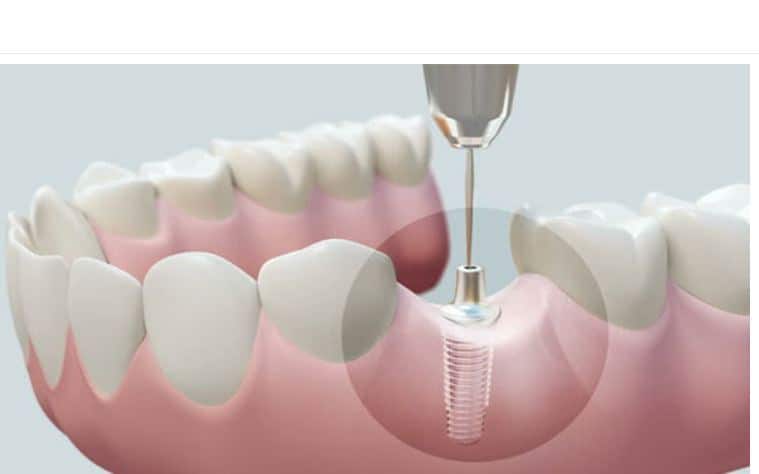The biological implants market is undergoing a significant transformation, with technological advancements, rising healthcare demands, and increased awareness about the benefits of these implants leading to rapid growth in the sector.
The global Biological Implants Market is predicted to reach USD 267.97 billion with a CAGR of 9.6% by 2030. According to a new market research report, the global biological implants market is expected to experience robust growth in the coming years, driven by innovations in regenerative medicine, an aging population, and expanding healthcare access worldwide.
Don’t Miss Out! Get Your FREE Sample!
Market Overview and Key Trends
Biological implants are medical devices that are designed to integrate seamlessly into the body, promoting natural healing and supporting the restoration of function in damaged or deteriorating biological tissues. Unlike traditional implants made from synthetic materials, biological implants are derived from natural sources or engineered to mimic natural biological structures. These implants play a crucial role in various medical applications, including orthopedics, dental restoration, cardiovascular surgery, and neurology, among others.
Several key factors contribute to this growth:
- Advancements in Regenerative Medicine
Cutting-edge research in stem cell therapies, tissue engineering, and gene editing techniques has led to the development of biologically-based implants that encourage tissue regeneration and repair. This is particularly evident in orthopedic and dental procedures where biologically active implants are replacing traditional, non-biological alternatives. - Aging Population and Growing Healthcare Needs
As the global population ages, the incidence of chronic conditions such as arthritis, osteoporosis, cardiovascular disease, and neurodegenerative disorders is on the rise. This trend is fueling demand for biologically-driven implant solutions that help repair or replace damaged organs and tissues. Biologically compatible implants offer significant advantages over synthetic materials, including reduced risk of rejection, faster healing, and improved functionality. - Technological Advancements in Implant Materials
Innovations in biomaterials, including biocompatible polymers, metals, and ceramics, are playing a vital role in enhancing the performance and safety of biological implants. These materials are designed to mimic the mechanical and biological properties of human tissues, allowing for better integration with the body and reduced risk of complications such as infection or rejection. - Increasing Healthcare Awareness and Access
In developing regions, there is a growing awareness of the benefits of biological implants, leading to greater adoption in medical treatments. Furthermore, improving healthcare infrastructure and expanding insurance coverage is enabling more individuals to access advanced medical treatments, including those that involve biological implants.
Key Market Segments
The biological implants market can be segmented into various categories based on product type, application, and region:
- Product Type: The market is primarily divided into bone implants, tissue implants, vascular implants, dental implants, and others. Bone implants, used in orthopedic and spinal surgeries, hold the largest market share, followed by dental and vascular implants.
- Applications: Biological implants are used in a range of medical procedures, including orthopedics, dental restorations, cardiovascular surgeries, neurology, and soft tissue repair. Orthopedic applications dominate the market due to the high demand for bone implants and joint replacements, while dental implants continue to experience steady growth as they offer long-term solutions to tooth loss.
- Geography: North America currently holds the largest market share, owing to the advanced healthcare infrastructure, high demand for medical innovations, and a significant aging population. However, the Asia-Pacific region is expected to witness the highest growth rate, driven by improvements in healthcare access, rising disposable income, and a large patient population.
Challenges and Opportunities
While the biological implants market is poised for growth, it is not without its challenges. One of the key obstacles is the high cost of biologically-derived implants compared to traditional synthetic implants. Additionally, regulatory hurdles and the need for extensive clinical trials to prove the efficacy and safety of new implants can slow down product development.
However, the growing emphasis on personalized medicine presents opportunities for manufacturers to develop more customized biological implants tailored to individual patients’ needs. The rise of 3D printing technology also holds promise for creating highly personalized implants that offer improved precision and patient outcomes.
Test It First – Download Your FREE Sample!
Conclusion
The biological implants market is set for a transformative period, fueled by technological advancements, increased demand driven by aging populations, and rising awareness of their benefits. As the healthcare industry continues to evolve, biological implants will play an increasingly vital role in improving patient outcomes and quality of life. Stakeholders in the healthcare and medical device sectors should remain attentive to these trends and invest in innovations that can cater to the changing needs of patients worldwide.
Source: PR News Releaser


Comments